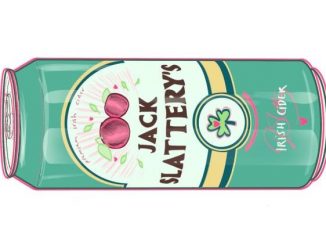
[dropcap]C[/dropcap]ovid-19 has had a massive impact on everyone, but some people have been affected in more serious and harmful ways than others.
One group of people who have been affected in this way are those who are and were addicted to drugs.
During the height of the pandemic, drug users were at a greater risk of contracting the virus based on their lifestyle factors such as crowded environments where drug-using often takes place and shared equipment.
Those addicted to opioids were extra vulnerable because of their pre-existing health problems.
Smoking heroin and crack cocaine can severely impact the lungs, therefore if a user was to contract the virus the chances of fatality are greatly increased.
Apart from the effects of drugs on the lungs, drug addicts who had been using alone in isolation were at an increased risk of overdosing. Ireland has the third highest overdose rate in Europe.
“The opposite of addiction is not being sober. The opposite of addiction is connection, that is, connection with life and with people, connection itself,” Deputy Aodhán Ó Ríordáin said in a Dáil Éireann debate in September last year.
Covid-19 reinforced the need to treat substance abuse as a public health issue.
By September 2020, 755 people had entered an opioid-substitution treatment programme; an increase of 7%.
According to a survey carried out by the government, several drug rehabilitation and support group services noted that reduced services and a lack of routine proved to be very challenging for their clients.
In the same survey, service providers were asked whether they had observed a change in the overall health and wellbeing of users since the Covid-19 outbreak.
96% of respondents said that their clients physical and mental health, family relationships and financial circumstances were all negatively affected, with clients’ mental health being the worst impacted.
Another study conducted by drugsandalcohol.ie interviewed 10 people. Four of the ten participants who had been in recovery or drug-free reported a return to substance use, while one reported an increase in their alcohol consumption.
“ I used [heroin] yesterday and I hadn’t used in six weeks. It was a huge, huge blow for me you know, that I lost six weeks but at the same time it makes me very angry because if I’d got the help I needed … I wouldn’t be in this situation.” a participant named Miriam, aged 30-34 told drugsandalcohol.ie.
Ireland has been failing those suffering from substance abuse during the Covid-19 pandemic.
Coolmine Therapeutic Community saw an 80% increase in calls after the first set of lockdown restrictions.
Connection to others is the biggest tool that addicts have, which is the biggest reason that many addicts found support groups and meetings so helpful.
With those services being drastically reduced or taken away, relapse is very tempting to those in recovery.
“The nature of addiction is isolation, that’s the nature of it. Connection is the biggest tool we have, that’s why people attend meetings but all of that is gone and people are being left to their own devices,” Elaine, a recovering heroin and crack addict told RTE.
The pandemic also negatively affected treatment in terms of fundraising. Addiction services were not able to hold fundraising events and had to rely on donations alone.
Many of these services were facing closure because of increased demand and lack of funding.
One service, the Keltoi Rehab Unit was closed during the pandemic and has remained so for the last 19 months.
There are no plans for the unit to be reopened according to a HSE response to a parliamentary question on the unit.
Healthy Ireland is an initiative that aims to improve the health and wellbeing of people living in Ireland.
€16 million will be invested into new measures to support Healthy Ireland and the National Drugs Strategy, Frank Feighan TD, Minister of State with Responsibility for Public Health, Wellbeing and the National Drugs Strategy declared.
This was revealed on October 12th when the Budget for 2022 was announced.
€6 million will be allocated to strengthening the health-led approach to drug use in the National Drugs Strategy.
“This funding will increase access to and availability of drugs and alcohol services,” Minister Feighan said.
This is the first time since 2008 that there has been an increase in funding for drug and alcohol task forces.
During the pandemic, cannabis-infused edibles were also on the rise. From gummy bears to chocolates, parents became increasingly concerned about their children consuming these products.
The effects of edible cannabis can last far longer than cannabis that is smoked, with lasting times of up to 12 hours.
Eating cannabis makes a person ten times more likely to end up in the hospital and it can trigger psychosis and hallucinations.
Jayde Maher
Image Credit:



